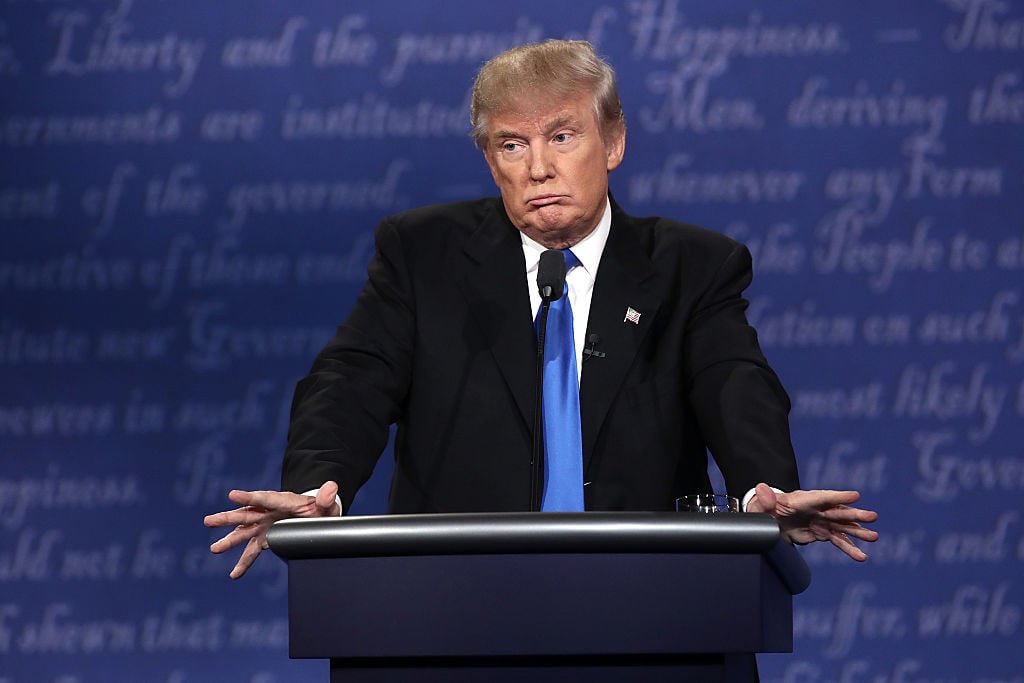Trump Attorneys File But One other Batsh*t Transient In Jan. 6 Data Enchantment


(Photo by Win McNamee/Getty Images)
There are two kinds of lawyers in Trumpland, and both were on display yesterday afternoon.
In US District Judge Trevor McFadden’s court room, Patrick Strawbridge of Consovoy McCarthy PLLC went yet another round with House Counsel Doug Letter over the Ways and Means Committee’s two-year-old quest to access the former president’s tax returns. Everyone was calm and capable, no one shouted, and it was frankly dull as dust.
The court seemed receptive to the defendant’s argument that perhaps it really couldn’t dismiss the case as moot now that the the IRS has decided to comply with a non-discretionary statute which permits the Chair of the Ways and Means to see any individual tax return he wants. Maybe the judiciary really ought to be in the business of scrutinizing congressional statements to divine whether there was legitimate legislative intent, suggested Judge McFadden, a Trump appointee.
He seemed entirely prepared to infer partisan intent from the Biden Justice Department’s reversal of the Trump-era position that the IRS could refuse to comply with a congressional request if the Treasury Secretary gazed into the soul of the Ways and Means Chair and divined non-legislative intent.
“I mean, if Congress changes hands in a couple years here and a Republican chairman of the House Ways and Means Committee asked for Hunter Biden’s tax returns, are [you] just going to say, ‘Oh sure, we’ve got to defer to Congress. They’ve said they’re interested in legislating on the presidential family. We’ve got to turn them over.’ Is that going to be the administration’s position?” McFadden wondered.
Strangely, His Honor failed to interrogate whether Secretary Mnuchin had partisan intent when he flipped off Congress and said he wasn’t going to hand over his boss’s returns.
In short, it was ridiculous, but it wasn’t crazy.
Meanwhile over at the DC Circuit where Trump is appealing US District Judge Chutkan’s refusal to enjoin the National Archives from releasing records to the January 6 Select Committee, former Kraken lawyer Jesse Binnall and Trump campaign counsel Justin Clark filed another amazing brief. As with every other Trump pleading in this case, it landed on the docket with a lunatic splat.
These guys aren’t just arguing that the former president’s claim of executive privilege has some weight — they’re saying that it outweighs the incumbent president’s waiver entirely. In fact, they’d go so far as to say that sitting presidents should have no say whatsoever in the disclosure of a predecessor’s papers.
When the Supreme Court noted that executive privilege exists for the benefit of the Republic, it meant the People’s interest in a functioning government, not the whims of the sitting President who may be unable see past his own political considerations.
They continue to insist that the four-part test for congressional subpoenas of the president’s personal records from Trump v. Mazars applies here. Never mind that all the records at issue are government documents in the hands of the National Archives. And not for nothing, but there’s no subpoena, Trump isn’t president, and there’s no separation of power issue at play since the executive and legislative branches are in agreement.
Despite the lack of interbranch conflict, Binnall and Clark would like the court to substitute its own judgment for that of the sitting president because “absent judicial review on a document-by-document basis, this dispute will be determined by a party rather than a neutral arbiter.”
And they invoke the Supreme Court’s admonition in Mazars that Congress can’t use the president’s personal records as a “case study,” pretending that the January 6 Committee is making a generalized investigation into a social phenomenon, not trying to get to the bottom of an attack on their own institution and an attempt to overturn and election.
“Chairman Thompson’s request openly flouts this rule by admitting that the Committee’s request seeks to ‘identify lessons learned, and recommend laws, policies, procedures, rules, or regulations necessary. . . in the future,’ effectively treating President Trump as a test subject,” Binnall and Clark argue. As if Trump didn’t summon the mob — “Be There. Will Be Wild!” — and exhort them to march on the Capitol.
It’s hard to know whether that’s the most shocking thing here, or if it gets nudged out by the argument that Mazars means it’s illegal for Congress to bother Donald Trump when he’s out playing golf.
Further, the limited time-period to review potentially responsive documents adds to the burden of the request. The Committee must narrow its request significantly or the burden on President Trump in reviewing all potentially responsive documents within the period provided by the PRA will be substantial. The request also burdens the presidency generally in the sense that if Congress is permitted to issue such sweeping requests, every President’s close aides will fear disclosure and thus provide less than candid advice.
In short, this isn’t a “real” brief intended to persuade the appellate court that the trial court erred. Patrick Strawbridge and William Consovoy wouldn’t put their names on such an embarrassing load of horse shit. This is nothing more than a blatant effort to run out the clock in hopes that Republicans take back the House next year and put and end to the whole inquiry.
Which probably won’t work, particularly since Team Trump drew a panel without any “McFaddens,” and Judges Millett, Jackson, and Wilkins set a blisteringly short briefing schedule in preparation for arguments by the end of the month. But at least Trump didn’t waste his fancy big boy attorneys on this one, right?
Judge questions why Justice reversed course on Trump taxes [Politico]Trump v. Thompson [Plaintiff-Appellant’s Brief]
Elizabeth Dye lives in Baltimore where she writes about law and politics.





